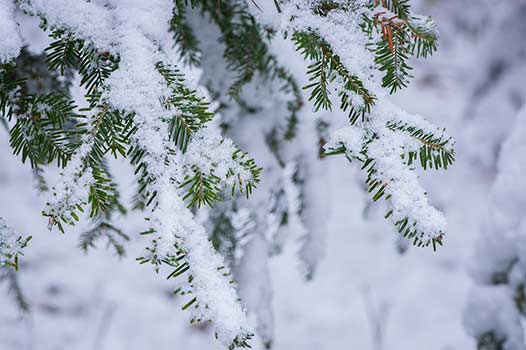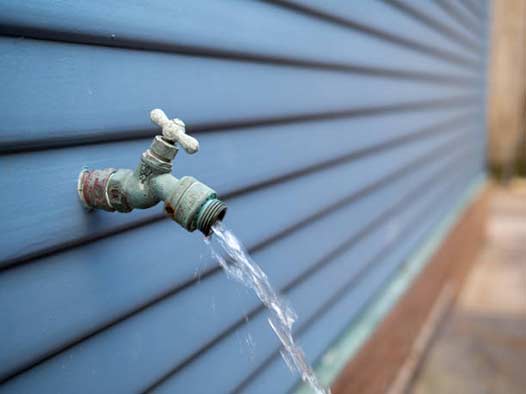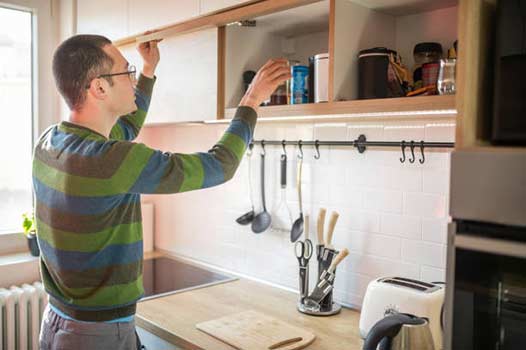
In Naperville and other cold climate regions, frozen pipes can be a significant concern during the winter months. When water freezes inside pipes, it can expand and cause them to burst, leading to costly repairs and water damage. Fortunately, there are several preventative measures homeowners can take to avoid frozen pipes and the associated headaches. Below we will discuss some effective tips to prevent frozen pipes in Naperville.
Understanding the Risks of Frozen Pipes
Before delving into preventive measures, it’s important to understand the risks that frozen pipes pose. When pipes freeze, the expanding ice can exert immense pressure on their walls, causing them to crack or burst. Not only can this lead to substantial property damage, but it can also result in significant water loss and higher water bills. Furthermore, when the water thaws, it can cause basement flooding emergencies and further damage to your home or property.
Insulate Your Pipes
One of the best ways to prevent frozen pipes is by insulating them properly. This helps to maintain a consistent temperature and prevents heat loss. Here are some key areas where pipes should be insulated:
- Exterior walls
- Attics
- Crawl spaces
- Garages
Insulating materials such as foam sleeves or insulation tape can be easily found at hardware stores and are relatively inexpensive. Make sure to pay extra attention to areas where pipes are exposed or vulnerable to cold air drafts.

Drain and Disconnect Outdoor Hoses
Before the freezing temperatures arrive, it is crucial to disconnect and drain all outdoor hoses. Leaving them connected can prevent water from fully draining, leading to ice formation inside the pipes. Additionally, close the outdoor shut-off valves and ensure any remaining water is completely drained from the system. This simple step can help prevent costly damage to your outdoor plumbing during the winter months.
Keep Your Home Warm
Ensuring your home’s interior is adequately heated can play a significant role in preventing frozen pipes. Set your thermostat to a consistent and reasonable temperature throughout the day and night, even if you are away. It is generally recommended to keep the temperature above 55°F (12.8°C), as colder temperatures can increase the risk of freezing pipes. If you plan on being away for an extended period, consider setting up a smart thermostat that allows you to monitor and adjust the temperature remotely.
Seal Drafts and Cracks
Inspect your home thoroughly for any drafts or cracks that may expose your pipes to cold air. Such openings can be found around windows, doors, and utility penetrations. Use caulk or weatherstripping to seal these gaps and prevent cold air from reaching the pipes. Proper insulation around windows and doors can also help retain heat within your home and ensure a warm environment for your plumbing system.

Keep Cabinet Doors Open
Another effective tip is to keep cabinet doors open, especially those located underneath sinks. This allows warm air from inside your home to circulate around the pipes, keeping them at a higher temperature. It is particularly important in areas where the cabinets are against exterior walls, as these areas are more prone to cold air infiltration. By promoting air circulation, you can create a warmer environment that helps prevent frozen pipes.
Let Faucets Drip
During exceptionally cold nights, letting your faucets drip can provide relief to your plumbing system. Allowing a small trickle of water to flow through the pipes can help alleviate pressure buildup and prevent freezing. This is especially useful for pipes that are more prone to freezing, such as those located in exterior walls or unheated areas. Although it may slightly increase your water consumption, it can significantly reduce the risk of frozen pipes and potential burst plumbing pipe emergencies.
Inspect and Maintain Insulation
Regularly inspecting and maintaining the insulation in your home is crucial for preventing frozen pipes. Over time, insulation can deteriorate or become damaged, reducing its effectiveness. Take the time to inspect your home’s insulation and identify any areas that require attention. Promptly replace or repair damaged insulation to ensure proper temperature control and protection for your pipes.
Consider Pipe Heating or Heat Trace Cables
In areas where frozen pipes are a consistent problem, it may be worth considering pipe heating or heat trace cables. These specialized heating systems can be installed directly on the pipes to provide continuous warmth and prevent freezing. While this solution requires an initial investment, it can provide peace of mind and protect your pipes from cold weather damage.
In Summary
Preventing frozen pipes in Naperville is not only essential for avoiding property damage but also for ensuring the uninterrupted flow of water during the winter months. By following the tips mentioned above, homeowners can take proactive measures to safeguard their plumbing system against freezing temperatures. Insulating pipes, draining outdoor hoses, maintaining a warm home, and sealing drafts are just a few of the effective strategies for preventing frozen pipes.
Remember to always monitor the weather forecast and take appropriate action to protect your pipes when extreme cold is anticipated. By implementing these preventative measures, you can enjoy a worry-free winter knowing that your pipes are secure and your home is safe from the hazards of frozen pipes.
—
In need of frozen or burst pipe repair services in the Naperville, IL area? Our professional Naperville plumbers can help! Contact us today at 708-801-6530 or by form below:
[gravityform id=”1″]

